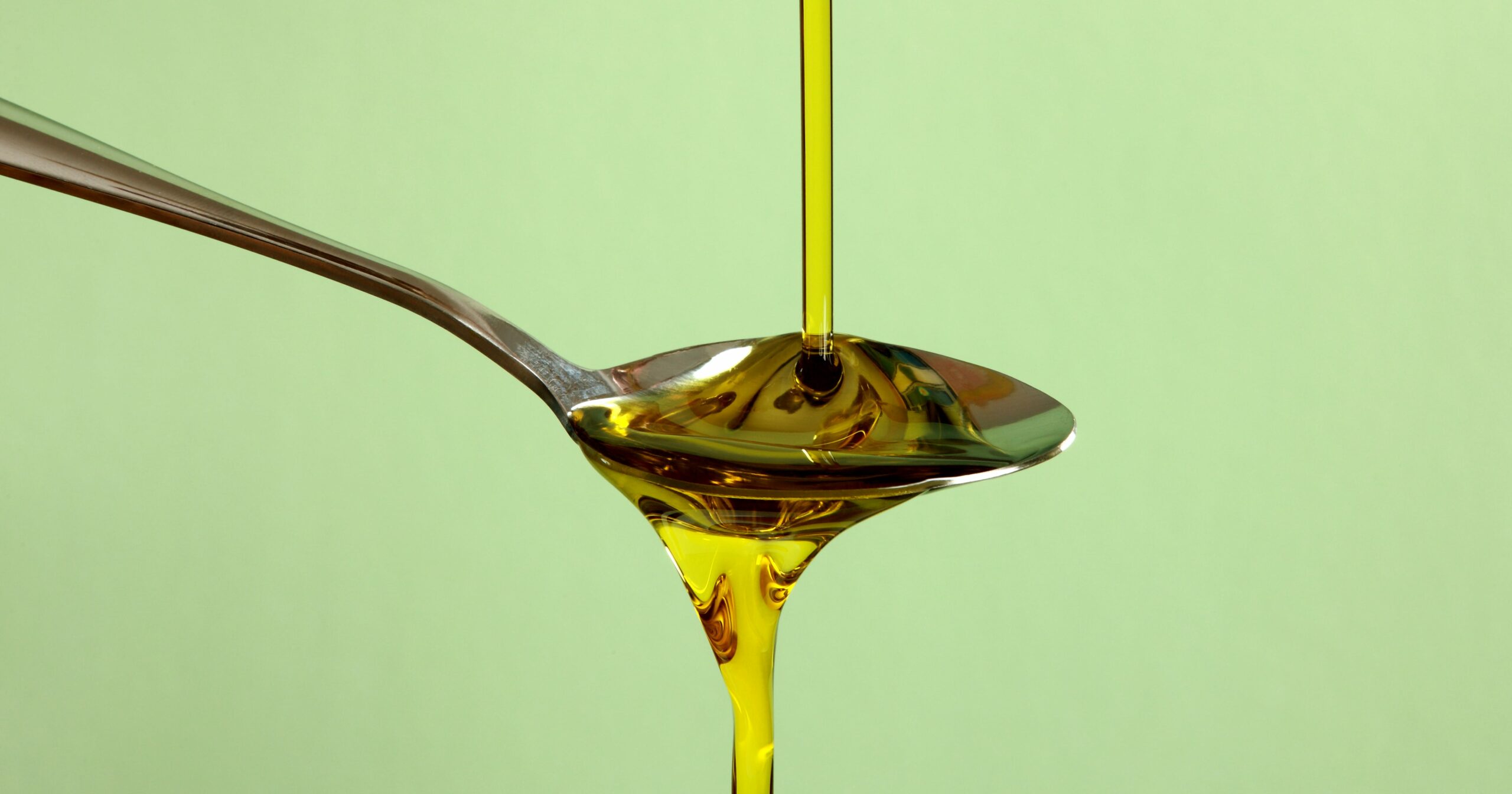If you regularly use social media, you’ve probably heard about “toxic” seed oils. Sometimes dubbed the “hateful eight,” these seed oils are blamed for a wide range of health issues, from headaches to heart disease to chronic inflammation.
Health influencers and bloggers often warn about the potential dangers of these oils, suggesting that their high content of omega-6 fatty acids and the processes used in their production make them harmful to our health. But does the research support these claims?
Many nutrition experts and scientific studies highlight the benefits of seed oils, emphasizing their content of essential fatty acids, vitamins, and antioxidants. They argue that seed oils can be part of a healthy, balanced diet when consumed in moderation.
So which is it? Read on to learn about the science behind seed oils to help you make informed choices.
What Are Seed Oils?
Seed oils are processed oils extracted from various seeds. The eight most common seed oils include canola (rapeseed), corn, cottonseed, soybean, sunflower, safflower, grapeseed, and rice bran oil.
Seed oils are typically produced by breaking the seeds, pressing them, and occasionally applying heat. They are sometimes extracted using chemicals. In addition, further refining, bleaching, and processing may be done to remove odors and flavors.
What Are The Risks Associated With Seed Oils?
One of the main reasons health influencers recommend avoiding seed oils is their high omega-6 fatty acid content.
You may have heard of omega-3 fatty acids, which are found in fatty fish and some plant sources like flax seeds, chia seeds and walnuts. These fats have a variety of health benefits, from protecting against heart disease to reducing the risk of cancer.
Omega-6 fatty acids, on the other hand, are used to produce molecules that cause inflammation in the body, per the journal Open Heart.
It’s important to remember that humans need omega-3 and omega-6 fatty acids to survive. In fact, seed oils contain an essential fatty acid (i.e., a fatty acid the human body cannot make on its own) called linoleic acid.
However, the ratio of omega-3 to omega-6 fatty acids may be an issue. Historically, humans consumed about a 1:1 ratio of omega-3 to omega-6 fatty acids. This ratio has skewed recently, with people eating more omega-6s than omega-3s. And back in 2007, researchers in the journal Diabetes, Obesity and Metabolism hypothesized that eating a higher ratio of omega-6s promotes chronic inflammation, which is associated with a variety of different illnesses, including diabetes and heart disease.
In reality, though, it’s not quite that simple. Other studies show that higher intakes of omega-6 fatty acids aren’t associated with an increase in markers of inflammation, per this this 2017 systematic review and meta-analysis on the journal Food & Function. And 2023 research in the International Journal of Molecular Sciences even shows that a higher intake of omega-6 fatty acids is associated with reduced heart disease risk.
So what gives? It’s important to consider the context when looking at this information. For example, it’s true that many ultra-processed foods (like packaged snacks and deep-fried foods) contain seed oils. But these foods also tend to be high in refined carbohydrates, sugar, and sodium. When you cut back on these foods, you reduce your consumption of all of those ingredients, and it can be difficult to say which is responsible for any health benefits you may experience.
In contrast, if seed oils are used outside of ultra-processed foods and as part of a balanced diet rich in fruits, vegetables, whole grains, legumes, lean proteins, and low-fat dairy products, they may not have as much of a negative effect on health. Overall, how seed oils are consumed is important when deciding whether they are beneficial or harmful.
Things To Know Before Consuming Seed Oils
While some people have raised concerns about eating seed oils without heating them up (such as in salad dressings), there’s no evidence that “raw” seed oils are worse for you than “cooked” seed oils.
That rumor likely came about because it’s true that certain cooking processes can increase the likelihood of seed oils negatively impacting your health. Regularly reheating unsaturated oils (such as seed oils) to high temperatures can produce a variety of chemical compounds, some of which are harmful to health, according to the journal Critical Reviews in Food Science and Nutrition. However, cooking with seed oils at home is less of a concern since you’re typically not reheating the same oil repeatedly.
In addition, trans fats are produced when seed oils are processed with hydrogen to solidify them. These can raise LDL (bad) cholesterol levels and increase your risk of developing heart disease, according to the American Heart Association. If you see “hydrogenated oil” or “partially hydrogenated oil” on an ingredient list, it’s best to steer clear, as the food likely contains harmful trans fats.
Are There Any Substitutes For Seed Oils?
If you want to avoid seed oils, olive oil and avocado oil are good alternatives. For low-heat cooking, use extra-virgin olive oil, which contains healthy fats and polyphenols (beneficial plant compounds) and is linked to a lower risk of heart disease, cancer, and age-related cognitive decline.
For high-heat cooking, use avocado oil, which has a higher smoke point and can be safely heated to higher temperatures than olive oil.
While some people replace seed oils with coconut oil, it’s important to note that coconut oil is high in saturated fats, which may increase your risk of heart disease, according to the AHA. (The sat fat in coconut oil is predominantly lauric acid, which may have health benefits – but the evidence about its effects on heart health have been inconclusive so far.) While the research on saturated fats and heart disease is still evolving, you’re better off sticking to olive or avocado oil as a substitute for seed oils.
Overall, while the science around seed oils continues to spark debate, it’s important to approach them with a balanced perspective. While seed oils contain omega-6 fatty acids, which have been criticized and praised in different studies, the key takeaway is moderation and context.
When eaten as part of a balanced diet, seed oils likely aren’t something to be worried about. However, it is important to be mindful of their use, particularly in ultra-processed foods and reheated oils. Substitutes like olive oil and avocado oil can be great alternatives. Still, at the end of the day, it’s best to focus on overall diet quality and consuming whole, less-processed foods rather than vilifying specific foods like seed oils.
Sarah Glinski is a registered dietitian and health and nutrition writer with over six years of experience in the health and wellness industry. Her specialties include diabetes, kidney disease, cancer, gut health, and intuitive eating. She believes food is more than just nutrients and acknowledges the power food can have to heal and build community. As a nutrition professional who writes health content, Sarah uses the latest scientific research to guide her writing and recommendations. Her goal as a writer is to ensure that complex health information is made easy to understand and actionable so that more people can benefit from it.




